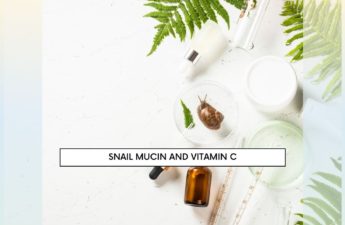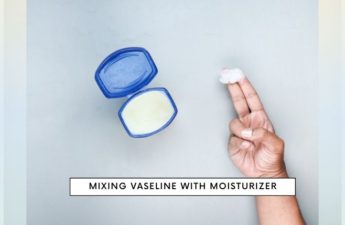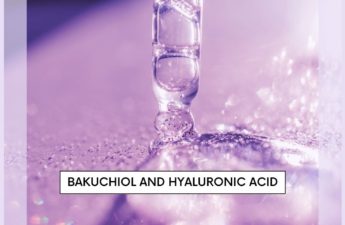A good skincare routine is tailor-fit for each different person. Though there are skincare products that are good for you in general, you should also know which ones can work well together and those you shouldn’t mix.
You can use Retinol and Cica together. These are two popular products that pair very well. Retinol can be a bit strong and cause skin irritation if you’re not careful. Cica, known for its skin-soothing properties, can help protect your skin against Retinol’s side effects.
This article will explain what Retinol and Cica are, how they can benefit you, and things to note about each skincare product. We’ll also see why these two can work well together.
Retinol
Retinol is a skincare product sometimes called vitamin A1, since it is a form of vitamin A. It’s a milder form of a stronger dermatological medication- retinoids.
You can get Retinol up to 2% in dosage over-the-counter, but more potent retinoids need prescriptions. Retinols are sold in serums, gels, creams, and emollients.
Benefits of Retinol
- Anti-aging properties: Retinols are known for helping skin age gracefully. This skincare product reduces collagen breakdown and promotes skin elasticity. It helps prevent and improve the appearance of wrinkles and sagging when used for eight weeks or longer. Retinol can also aid in reducing the amount of moisture that evaporates from the skin passively, decreasing skin dryness and keeping it looking plump.
- Fights against acne: Reduces abnormal skin peeling that can block pores and result in acne.
- Reduces inflammation: Retinol has properties that block molecules that can cause inflammation.
- Improves the appearance of skin: As Retinol penetrates as deep as the dermis layer of skin, it can help to improve skin tone, skin texture, and minimize scars and pores. Retinol’s assistance in cell turnover and collagen production also helps to brighten your skin’s appearance.
- Strengthens epidermis: This helps protect skin against external factors that can damage skin, like pollution.
What You Need To Know
Retinol may be popular for its positive effects on the appearance of your skin. However, you should use this product with a bit of caution. It can be a potent active ingredient and can negatively affect your skin if not used carefully.
Here are some things to note if you’re planning to add Retinol to your skincare routine:
- Introduce Retinol into your skincare routine slowly. The American Academy of Dermatology Association (AAD) recommends that when you start out using this product, you should monitor its effects on your skin.
- Do a patch test first. This will help determine how your skin might react to Retinol. The side of the neck or the inside of your arm is an excellent place to test.
- Wash the skin where you plan to do the patch test. After drying the skin, apply a small amount of the product to your skin and watch for any allergic or adverse reactions. To be extra thorough, you can repeat the test once or twice for up to four days, just in case there might be a delayed reaction.
- After cleansing, wait 20-30 minutes before applying Retinol. Cleansing your skin removes the buildup of dirt, oil, and other debris from your face. You should wait for your skin to “rest” a little bit before applying Retinol, so you don’t stress it out.
- Retinol makes skin more sensitive to sun damage. This is why Retinol is recommended to be used during your nighttime skincare routine. You avoid making your skin more vulnerable to the sun during the day.
Otherwise, if you decide to use Retinol during the morning instead, make sure to apply sunscreen to protect your skin.
If you’re worried about your beauty products being cruelty-free, try Dr. Dennis Gross Skincare Ferulic Acid + Retinol Brightening Solution (from Amazon.com). It has excellent anti-aging properties that will repair sun damage and signs of aging.

Side Effects of Retinol
Retinol can be a strong active ingredient and may not suit very sensitive skin. Make sure to follow each product’s instructions, especially when it comes to application.
This skincare product can cause certain side effects if you use too much of it for a prolonged period or at a dosage or concentration that may be too high for your skin:
- Red or flushed skin
- Excessively dry skin or skin scaling
- Skin swelling or inflammation
- Stinging sensation of skin/ blistering
Less common side effects are:
- Skin discoloration (may cause hyperpigmentation in people of color)
- UV light sensitivity
- Acne flareup
Cica
This has become very popular in Korean skincare products. Cica, also known as Centella Asiatica, Gotu kola, Indian Pennywort, and tiger grass, is sold in serums, moisturizers, and face masks.
The plant it’s made from has been a staple in Chinese medicine for centuries. Due to its skin-soothing properties, it is commonly recommended as a skin-calming treatment after cosmetic procedures.
Benefits
- Full of ingredients for your skin’s health. Cica is packed with amino acids, antioxidants, beta carotene, fatty acids, and vitamins A, B1, B2, and C.
- Boosts blood circulation and hydration in the skin. This helps to decrease the amount of moisture loss in the skin.
- Skin calming properties. It assists in calming inflammation, skin irritation, and redness and is suitable for treating acne.
- Anti-aging. Stimulates the production of collagen, which helps skin elasticity and aids cellular repair. This assists in preventing and improving the appearance of age spots and wrinkles.
- Strengthens skin against external stressors. It helps make skin more resilient to external sources of skin damage like UV light and pollution.

If you’re looking for the next soothing cream for your skin, there’s Bioderma Cicabio Cream from Amazon.com. You can use it morning and night to moisturize, soothe, and renew your skin after cleansing.
What You Need To Know
Side effects, like skin allergies resulting from the use of cica, are rare, and it’s not toxic if you use it in the recommended dosages.
However, as recommended with all new skincare products you want to introduce into your routine, do a patch test to be safe.
Why Retinol and Cica Work Well Together
As mentioned previously, Retinol can be a bit much for some skin types. Though it has many benefits, it can cause skin irritation after use.
Applying a Cica skincare product after Retinol can calm and soothe your skin, making it a great product to use with Retinol. Retinol can also dry out your skin, whereas Cica boosts hydration in the skin, counteracting this side effect of Retinol.
Cica and Retinol have similar positive effects on the skin, like being anti-aging and strengthening skin against external damaging factors, so these two products can boost each others’ benefits.
Innisfree has launched Retinol Cica Traces Ampoule that is formulated with both retinol and cica in a bottle. Calm and revitalize your skin without going through the 10 steps Korean skin care routine. It penetrates and absorb into your skin without feeling sticky.
Conclusion
Retinol can be a bit strong and should be used with caution. Cica skincare products, on the other hand, are great for very sensitive skin and are suitable for all skin types.
You can use Retinol and Cica skin care products together. Calming Cica helps to prevent and fight against the possible side effects of the potent active ingredients of Retinol.
They both have similar skin health benefits and can work together when it comes to anti-aging and strengthening the skin.
Sources
- Healthline: How does Retinol Work on the Skin?
- Medical News Today: What is retinol and how can a person use it?
- American Academy of Dermatology Association: Retinoid or Retinol?
- National Library of Medicine: Pharmacological Review on Centella asiatica: A Potential Herbal Cure-all
- Allure.com : Why Cica Is the Latest K-Beauty Ingredient Taking Over Skin-Care Products
- Healthline: Have Dry, Sensitive Skin? Cica Cream Will Be Your New Favorite Skin Care Product
- Chatelaine: What Is Cica? The Buzzy Skincare Ingredient, Explained
- Good Housekeeping: Why Cica Is the Star Skincare Ingredient You’ve Probably Never Heard Of
- Cosmopolitan: Bookmark This: The *Very* Best Skincare Ingredients To Layer For Clear, Glowing Skin



